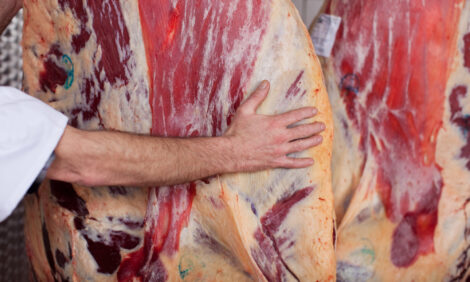



China's tech firms are using artificial intelligence to map pig faces
The facial mapping will be used to monitor feed levels and alert farmers to disease outbreaks.According to recent reports, Chinese companies are pushing facial and voice recognition and other precision monitoring technologies as ways to protect the country's pigs. In an sad start to the Year of the Pig, thousands of Chinese hogs have died through the spread of African swine fever, a disease threatening the country's supply of pork.
"If they are not happy, and not eating well, in some cases you can predict whether the pig is sick," said Jackson He, chief executive officer of Yingzi Technology said in an interview with The New York Times. China's biggest tech firms are seeking to improve the health and welfare of pigs: Alibaba and JD.com, are now using cameras to track pigs' faces. Alibaba also uses voice-recognition software to monitor their coughs.
According to The New York Times, many in China are quick to embrace high-tech solutions to just about any problem but this movement into livestock may be too soon.
"I like the idea, I like the concept, but I need to be shown that it works. If it doesn't work, it's counterproductive," said Dirk Pfeiffer, a professor of veterinary epidemiology at the City University of Hong Kong, when speaking to the newspaper.
Many smaller scale pig farmers in China are sceptical when it comes to investing in such technology, as they believe "they will not find a use for it", and that the costs will far outweigh 'traditional' tagging and monitoring methods currently adopted.
This said, Wang Lixian, a research fellow of animal and veterinary science at the Chinese Academy of Agricultural Sciences, is optimistic that the cost of the technologies will drop. Speaking to The New York Times he said, “Right now, these applications may not have reached their desired levels, but in the future they will become more and more extensive".
With African swine fever blasting through both large- and small-scale farms throughout China, the companies supporting the technology advise that they can aid farmers with "isolating disease carriers, reducing the cost of feed, increasing the fertility of sows and reducing unnatural deaths". This more precise tracking of pig health could allow earlier detection, isolation and treatment of potentially catastrophic disease outbreaks in the future.






